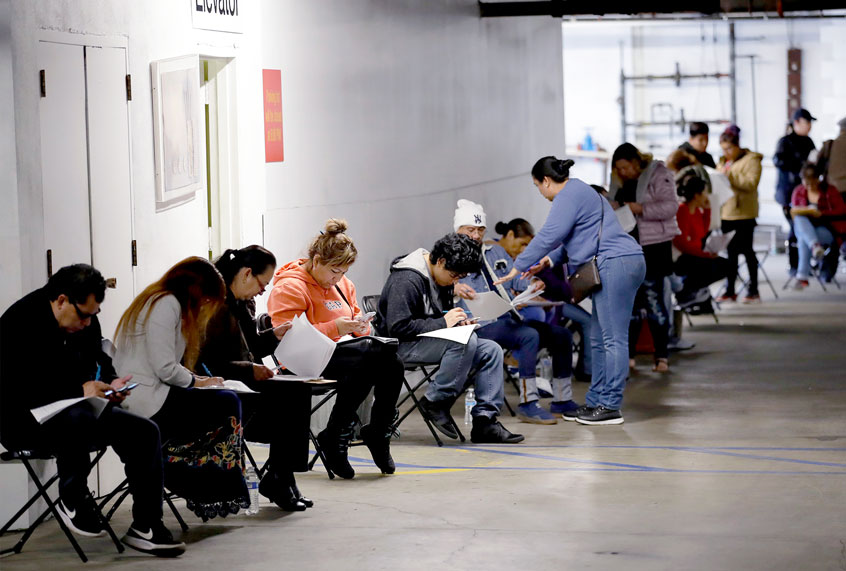Economic experts told Salon on Wednesday that, while the unemployment numbers in June were surprisingly positive, the long-term consequences of the pandemic-induced downturn could still be severe for millions of Americans faced with permanent unemployment.
Last week the Bureau of Labor Statistics revealed that non-farm payroll employment increased by 4.8 million jobs in the month of June while the unemployment rate dropped to 11.1 percent. Overall this constituted a 2.2 percent decline in unemployment compared to May 2020, and a decrease in the overall number of unemployed people by 3.2 million. The new number of unemployed stands at 17.8 million.
Yet as FiveThirtyEight pointed out, “crucially, the number of workers who have permanently lost their jobs rose quite a bit — signaling that for an increasing number of Americans, getting back to work won’t be an easy matter.” Writers Amelia Thomson-DeVeaux, Neil Paine and Julia Wolfe also noted that “the unemployment rate for white Americans continues to be much lower than the unemployment rate for Black, Hispanic or Asian Americans.”
Dr. Gabriel Mathy, a macroeconomist at American University, echoed those writers’ concern.
“For those that have permanently lost their jobs, if the recession drags on then they face the prospect of long-term unemployment, which will make it harder for these workers to find work again with a large hole in their CVs,” Mathy explained by email. “However, the economy is rebounding strongly currently so hopefully that continues.” He also pointed out that “there is the prospect for a recurrence of a new downturn (‘double-dip recession’) and then unemployment could rise again and job openings would dry up, and those permanent job losses could drag on.”
Mathy added, “In terms of government programs that can help them, continuing the spending programs of the CARES act will help ensure buoyant economic conditions and more job openings available.”
Salon also spoke with Dr. Richard D. Wolff, professor emeritus of economics at the University of Massachusetts Amherst, who argued that the trend of long-term unemployment existed prior to the current downturn and has merely been accelerated by it.
“There was pretty widespread understanding that a whole raft of jobs would be disappearing in the next five to 10 years as a kind of culmination of robots and artificial intelligence that were installed for all the usual reasons in capitalist businesses across the world,” Wolff told Salon. “Every business that relies on labor . . . has just been given a very powerful lesson in why it might be nicer to have less need for labor than more,” Wolff said, noting that the pandemic has demonstrated that labor is “vulnerable to viruses in a way that machines or other systems aren’t.”
Wolff also pointed out that the economic downturn could embolden employers to curb their workers’ rights and make workers more hesitant to defend themselves.
“Whenever you have unemployment like this, big fat unemployment — you’re basically sending an invitation to every employer . . . to cut wages,” he said, “and basically the confront those who still have jobs, the employed people, with a demand to take lower wages or their contributions to their medical care or their pension plans, because you can.” Wolff continued: “You have an army of the unemployed out there freaked out of their minds because, among other things, they don’t think their jobs will be there whenever this horrible pandemic passes.”

